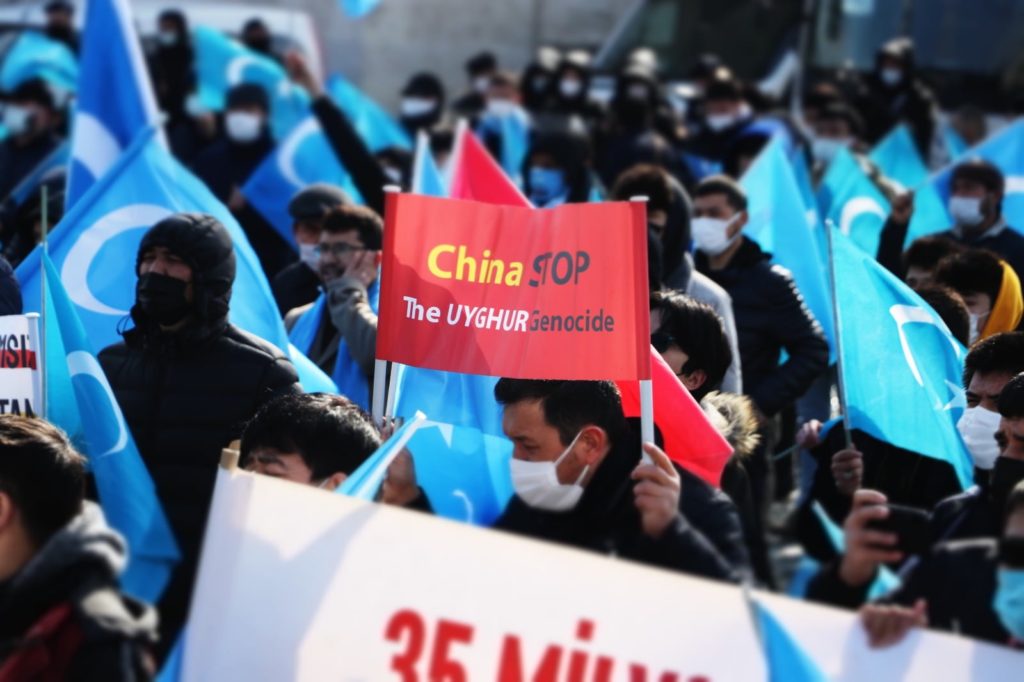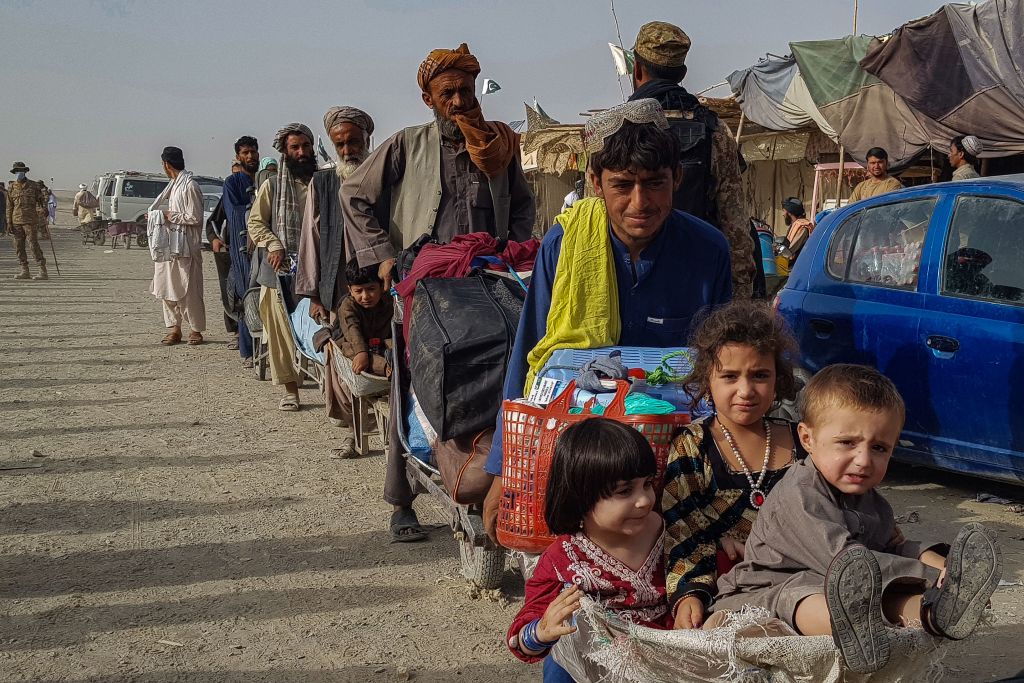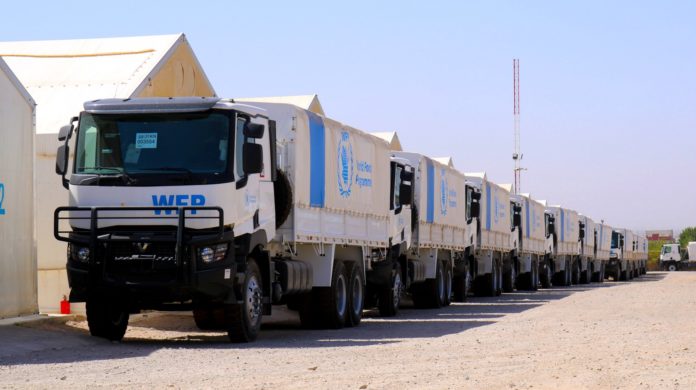Context
Despite a haphazard military pullout and the subsequent despondency evoked by the rapid collapse of the Afghan government, the United States has been compelled to resume talks with the Taliban. The US decision to begin talking to the Taliban again in Qatar starting this week may seem like an undue concession to a group which the US has spent the last twenty years fighting. However, there are genuine compulsions underpinning the American decision to engage with the Taliban.
On the heels of the Taliban takeover, the US had immediately withheld foreign Afghan assets to the tune of $9.5 billion. There was also a halting of other western aid via bilateral and multilateral sources, which cumulatively financed between 70 to 80 percent of the annual budget of the country. The US and its allies have tried to apply economic pressure on the Taliban to compel them to show moderation, and not revert to the repressive regime which the US has spent over $2 trillion to topple and disband after 9/11.
While desperate for international recognition and support, the Taliban have thus far not shown willingness to be more tolerant or to create a more representative government. But the international isolation of the incumbent Taliban regime has incurred the heaviest toll on the citizenry. With winter approaching, more than half the country is facing acute food insecurity according to UN agencies such as the World Food Program.
Humanitarian Crisis and Extremist Threats
Given the presently dire situation in Afghanistan, the US and Europe have been trying to walk the tight rope of providing modest humanitarian support to the country but doing so in a manner without lending legitimacy to the Taliban. The UN system has thus far been used to funnel humanitarian support, which alongside similar aid from neighboring countries, is providing a lifeline to many desperate people. However, humanitarian support alone will not be able to prevent Afghanistan’s economic collapse.
While Pakistan has urged the Gulf states, Turkey, Russia, and China to commit support for the Taliban regime, no country has stepped forward yet to provide Taliban the kind of support which would be required to avert economic collapse. This is because there is no international or regional consensus on what to do next in Afghanistan.
There are however other troubling signs which have prompted the US to negotiate with the Taliban again. The initial US ‘peace’ deal with the Taliban was based on four major points, i.e. reducing violence, withdrawing foreign troops, starting intra-Afghan negotiations and preventing Afghanistan from becoming a base for global jihadi outfits once Western troops had pulled out. The pact had provided Western forces with a face-saving opportunity to exit Afghanistan despite the failure of intra-Afghan talks, but the ability of the Taliban to prevent Afghanistan from becoming the base for another major attack on the West remains a pressing concern. And this is the reason US wanted to maintain over the horizon capabilities to contend with any potential terrorist threats.
However, the closest neighboring states from where these operations could be launched have flatly refused to host American assets. Russia’s influence over Central Asian States led them to rebuff US attempts to maintain a military presence. This refusal in understandable from the Russian point of view, as allowing an American base in Turkmenistan, for instance, would have created an American presence on its own borders. Moreover, Taliban had resisted strongly to any such over the horizon operation declaring it was capable to deal with such risks.
While Pakistan had provided much needed support to the US in the past as a major non-NATO ally, it paid a heavy price in form of reprisal attacks, including domestic political backlash. Pakistan has however refused to host any US presence to engage in cross-border operations in Afghanistan, which could anger the Taliban.
Afghan Taliban have given assurances that they are more than able to prevent Afghanistan from becoming a base for jihadi outfits once Western troops pull out. However, states neighboring Afghanistan suspect that their adversaries will continue financing proxies which will use an increasingly destabilized Afghanistan to create trouble for them.

Chinese Worries
China fears that the East Turkestan Islamic Movement (ETIM) will grow stronger in a destabilized Afghanistan, and it has wanted assurances from the Taliban that they will not permit ETIM to use Afghan soil to create restiveness in the Xinjiang region.
Although China is interested in the vast mineral reserves in Afghanistan, and it could potentially also link Afghanistan to the ambitious Belt and Road Initiative, China has taken a cautionary approach to see if the Taliban can create stability in the country before trying to economically invest in them. Thus far, Chinese support to the Taliban is limited to provision of humanitarian support and to ensure that instability in Afghanistan does not create a militancy problem for China.
In its efforts to pursue its own version of stabilization in Afghanistan, the US has not shown much sensitivity to regional insecurities of Afghanistan’s neighboring states. It is not only Pakistan which felt uncomfortable with the Indian penetration in Afghanistan during the U.S. military presence in the country, but China also criticized the US administration’s decision during the tail-end of the Trump administration when it delisted the Eastern Turkmenistan Islamic Movement (ETIM) as a terrorist organization. There is an uptick of ETIM attacks targeting Chinese investments in Pakistan, and China is trying to use Pakistani influence with the Taliban to deny the ETIM sanctuary in Afghanistan.
Russian Anxiety
Like China, Russia also wants to prevent the spillover of any instability especially into the Central Asia States and countering the threat posed by Islamic State-Khorasan Province ISIS-K and trafficking of illicit drugs. This can be best achieved if there is an inclusive government in Afghanistan. Russia has actively engaged with Afghan Taliban, Pakistan, and India to achieve this goal, but thus far there is no regional consensus on how to move forward.
India-Pakistan Dynamics
India wants to prevent sectarian groups such as Lashkar-e-Tayyiba (LeT) from using Afghanistan as a jihad launchpad against Indian atrocities in Kashmir as it had occurred in the past. India had invested heavily in the Karzai and Ghani governments to counter this possibility and allegedly also used Afghanistan to support groups such as Tehreek-e-Taliban Pakistan (TTP) and Balochistan National Army to carry out terrorist activities inside Pakistan. If Afghan Taliban are unable to establish their writ across the country, Pakistan fears these groups will continue to launch cross border attacks from their refuge in Afghanistan.
After the pullout of western troops, Pakistan has been trying to get assurances from the Taliban to prevent militants affiliated with the Baloch separatist movement or the TTP from launching attacks on Pakistani soil. However, in the absence of international consensus on how to deal with the emergent ground realities in Afghanistan, Pakistan has recently stuck its own deal with the TTP which had been trying to use bloody means to turn the Pakistani state into an Islamic Caliphate since the past two decades. The Afghan caretaker setup, including the Haqqani network, played an instrumental role in enabling a ceasefire between the Pakistani military and the TTP. Whether Pakistan’s ceasefire with TTP will hold remains to be seen. It is also not certain if the Taliban will be able to prevent other jihadi outfits from launching attacks in Kashmir or Xinjiang.

The futility of piecemeal approaches to stabilizing Afghanistan
A piecemeal approach towards dealing with the emergent realities in Afghanistan is not sufficient to contend with jihadi groups, especially those with global aspirations. ISIS-K has denounced the Taliban as a fake jihadist movement, and it is trying to exploit the group’s internal tug-of-war between pragmatic considerations and its ideological rhetoric.
As a result, the Taliban remain wary of not being viewed as becoming complicit with the West after having assumed power. The Taliban caretaker setup, comprised of exclusively male and primarily Pushtun leaders, was presumably meant to appeal to the core ethnic base of Taliban supporters and to avert more hardline elements within the Taliban from joining ISIS-K. Despite this fact, however, the U.N. envoy to Afghanistan has delivered a bleak assessment this past week claiming that ISIS affiliated groups now appear to be present in almost all 34 provinces of the country. The Taliban have sent their fighters to eastern Afghanistan to dislodge them. Trying to flush out this elusive group will not be easy for the Taliban, and it will risk overstretching limited Taliban resources. It could further alienate many Afghans, whose life has taken a turn for the worse after the Taliban swept to power.
Emerging Approach
It is in this broader context that the US decision to begin talking to the Taliban needs to be gauged. The agenda for talks between the Taliban and the US negotiators seems broad. The US is still insisting that the Taliban will only receive financial and diplomatic support from Washington if they not only fight “terrorism”, but also install an inclusive government, respect the rights of minorities, women, and girls, and provide equal access to education and employment.
These latter and more ambitious goals will however be facilitated if the US can create needed consensus with the Taliban and with other concerned stakeholders to support the Taliban in contending with the ISIS-K threat. Securing a consensus amongst key stakeholders in this regard should not be difficult, given that none of the above-mentioned states have any interest in seeing ISIS-K becoming more influential in Afghanistan, leading to the kind of environment that led to the 9/11 tragedy. It would also serve the other desirable goal of enabling more moderate elements within the Taliban to come to the fore and in turn make life more palatable for ordinary citizens of the country.




